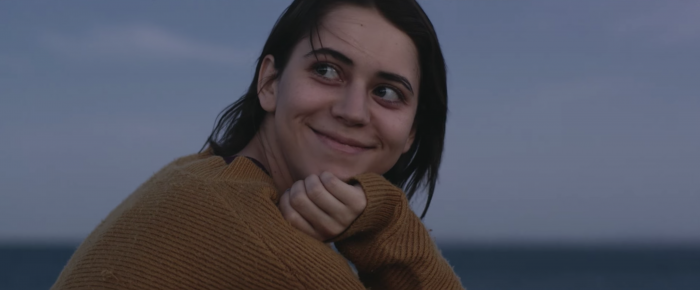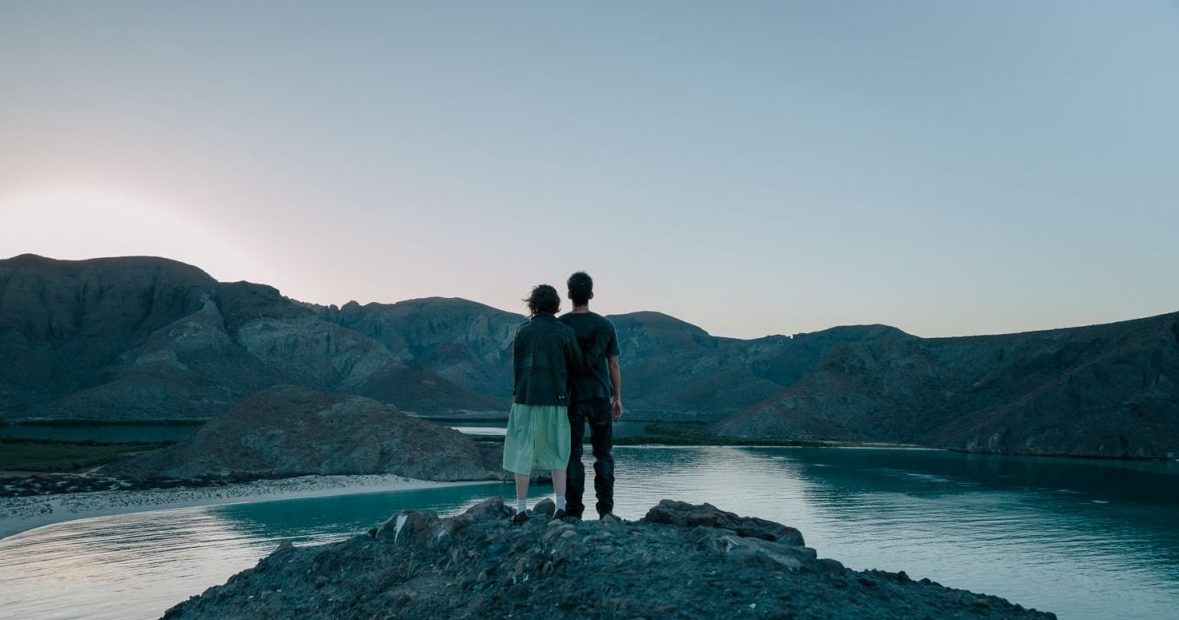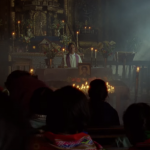Director: Humberto Hinojosa Ozcariz
In a city hospital, a young woman decides she’s had enough of being a patient. She flushes all her medications, removes her drip and packs up her things. She tells her friend Violeta (Camila Sodi) she’s well enough to leave the hospital and they set out together, hitting the road in an old car to a favourite beach in California. Emilia (an initially glowing Teresa Ia) has every reason to live for the moment, refusing to give up on her dream of revisiting her favourite beach despite dire weather warnings of a coming storm. Along the way they rescue a strange and attractive stranger, the enigmatic Luis Gerardo Méndez as Mark, and this is where Road to Mars (Original title: Camino a Marte) finds its point of difference.
Mark claims to be a visitor from another planet come to destroy the world after the human experiment has been deemed a failure. For Emilia, this is an easy idea to swallow while Violeta is initially convinced he is drunk or high (as would most of the audience, I suspect). Over the course of the movie and the many miles clocked up on the odometer, the women begin to believe his story – but do we? So far, so Thelma and Louise, but the familiar formula is given an appealing freshness with the inclusion of Mendez’s Mark – not a blink-and-you’ll miss him Brad Pitt cut-out, but a fully-fleshed out performance of a memorable character from this up-and-coming Mexican actor.

Performances by the three lead actors are strong: Teresa la as Emilia gives a realistic portrayal of a young woman who has come to terms with her fate and is determined to take charge of her destiny – as far as she can. Sodi as Violeta is excellent as the supportive best friend, deeply suspicious of the newcomer. In one scene that almost seems to be from another movie, so different is the tone, she is faced with the threat of rape after initiating sex with one of two men traveling together to avoid the oncoming storm.
The scene has a role to play in advancing the narrative as it gives Violeta’s character a reason to be angry with Mark and Emilia when they return after spending time alone together. She’s not just angry, she’s deeply afraid and Mark seems to intuitively understand that. His reaction is dramatic – but are the results Mark’s work or just a random accident? Gerardo Mendez makes the bizarre-on-paper character of Mark surprisingly credible; he avoids clichéd physical cues to indicate that he is an alien in a borrowed human body. It is his convincing surprise in the face of very ordinary human behaviours and concepts – like seeing a horse for the first time – that communicates his status as a visitor to earth.
Humberto Hinojosa Ozcariz, director of 2012’s I Hate Love – also a love story with a fantastical element – handles the story (which he co-wrote) with assurance. Shots of the earth from space, a running countdown to the end of the world, and news broadcasts about the upcoming storm provide a sense of impending disaster that reflects Emilia’s own situation. Passing through an almost lunar landscape, the inter-planetary references are present but understated. The film doesn’t aim to convince us of Mark’s true identity. Instead it presents a series of incidents and reflects on their implications.
Setting the story against the symbolic pending arrival of the storm of the century adds thrust to the narrative and when the doom-laden clouds finally begin to brew, we are left to wonder if it is, in fact, the beginning of the end of the world.





